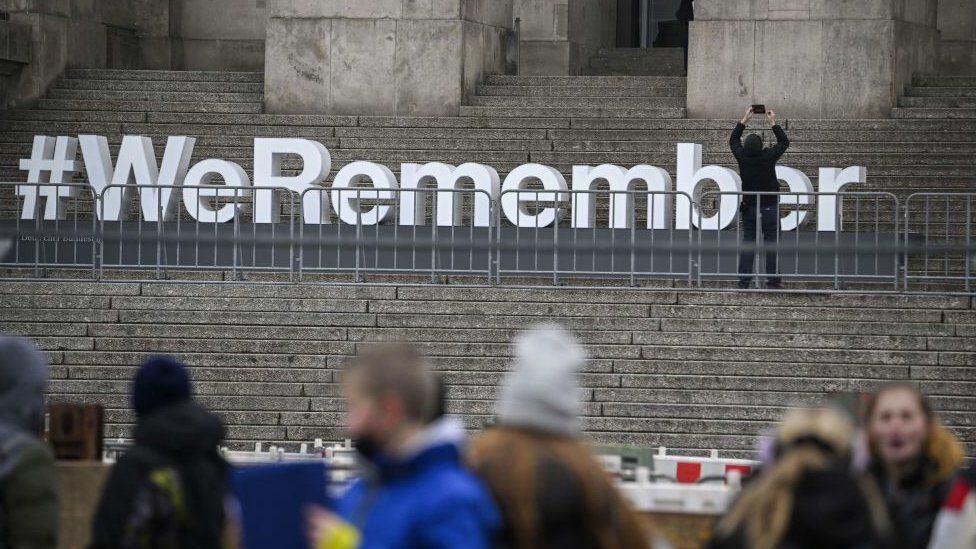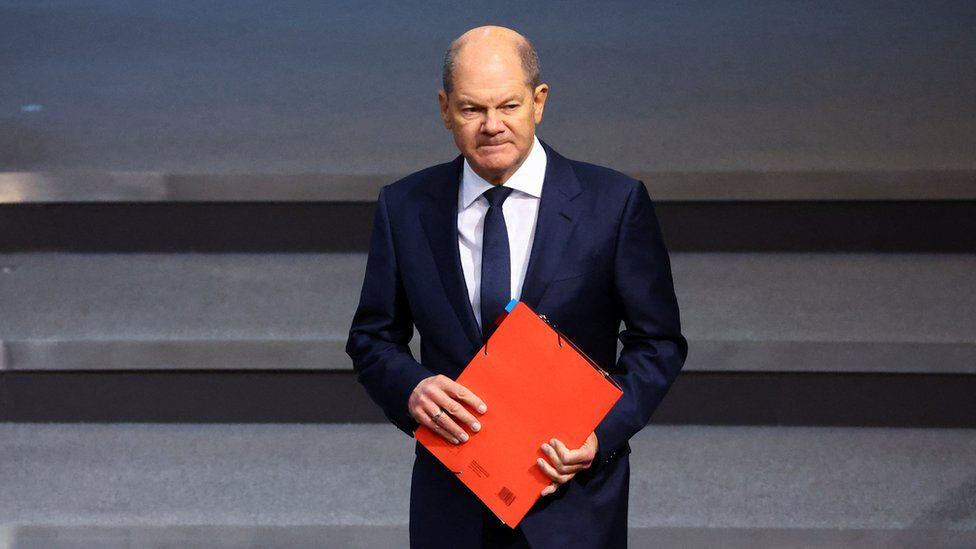The argument of Ukraine to ask for war tanks is clear.
He insists that they can make a difference, helping to drive Russian troops out of Ukrainian territory, which would give Kiyv an advantage.
LOOK: Why are Western tanks so important to Ukraine in its war with Russia?
Germany it produces the vast majority of modern heavy tanks in Europe, the Leopard 2. At least 2,000 are spread among the Western Allies, and Germany owns their export licences.
This meant that, while he hesitated, other countries like Poland, which is eager to send tanks to Ukraine as soon as possible, have been unable to do so. They needed the green light from Berlin to be able to re-export the tanks.
Ukrainian soldiers still need to be taught how to use the vehicles, and it is not clear how many and how quickly they can reach Ukraine.
But lingering doubts in Berlin – even as Russia committed human rights abuse after human rights abuse in Ukraine – led to enormous pressure from Western allies who, until now, had been keen to present an image of unity in the face of aggression. russian.
German Chancellor Olaf Scholz’s indecision also divided his country, including his governing coalition and his own party, the SPD.
“Free the leopards!”was the slogan heard at periodic rallies outside the German parliament, as debates raged over whether or not to send the tanks.
What was it that caused Scholz so much consternation?
The weight of the story
The historical weight felt by German leaders today cannot be overemphasized.
This Friday is Holocaust Remembrance Day. A huge sign proclaiming “We Remember” stands on the Reichstag in Berlin.
Having been the aggressor in two world wars, many Germans are reluctant to let their country become Ukraine’s main tank supplier.
The zeitenwende or “turning point” in Germany that Chancellor Scholz announced shortly after Russia invaded Ukraine is highly significant. Both for Germany and for all of Europe.
Berlin has promised to invest massively in its dwindling and outdated military, in an effort to play a much more assertive role in defending Europe. A real break with German timidity after World War II and its preference to let its allies handle security issues.

This “transformation” has had some bumps and is far from complete, but it has certainly begun, and that represents a big change for Germany.
Since World War II, Berlin has been reluctant to take the lead, but as Europe’s largest economy it is what, on many occasions, its allies have expected it to do.
Other drawbacks with shipping tanks
Going back to the tank debate, another sensitivity that Germany has to overcome is that its Leopard 2s are going to be used against Russian soldiers.
The Germans feel a deep responsibility for the slaughter of millions of Russians during the two world wars.
A slightly more distant, but not entirely unrelated, theme is that a large part of German society – particularly in the eastern section of the country that was communist for decades – traditionally feels close to Russia.
NGOs that monitor Russian disinformation have reported that many Germans fall for it.
Having said that, the vast majority of Germans sympathize with ordinary Ukrainians who have been caught in the middle of the conflict.
Although in a poll taken just before Christmas, 40% of Germans interviewed said they understand why the Kremlin blames the West for its invasion of Ukraine: for the eastward expansion of the NATO military alliance.

Olaf Scholz is convinced of the transatlantic alliance, but historically his party – although less and less today – has set its sights to the east, to Moscowdue to the slight suspicions that the US and the domination of NATO generate in several of its members.
For all these reasons, and a few others that I will illustrate, Chancellor Scholz did not want Germany to go it alone, nor to become the main facilitator on the front in sending tanks to the Ukraine.
Another German concern has been that while European countries such as Britain, Poland and the Netherlands say the Kremlin is clearly escalating the conflict, many in Germany say they fear sending heavy tanks and other offensive weapons to Ukraine could push Vladimir Putin to wilder extremes. Even the use of nuclear weapons.
It is believed that one of the reasons Chancellor Scholz has pushed so hard on Washington to also send tanks to Ukraine has been so that Europe may feel that it has the US nuclear power involved and on its side.
In the end, Olaf Scholz did not want Germany to set itself up and stand alone as the main supplier of tanks to the Ukraine.
His sudden 180-degree turn may well have been because he realized that if he continued to slow down those tanks, he might see himself as isolated among his allies.
Something worth keeping in mind is that, despite current and previous controversies over the lengths that Chancellor Scholz has given to the delivery of military equipment to Kyiv, Germany is among the largest individual donors of military and humanitarian aid to Ukraine.
Source: Elcomercio
I am Jack Morton and I work in 24 News Recorder. I mostly cover world news and I have also authored 24 news recorder. I find this work highly interesting and it allows me to keep up with current events happening around the world.

:quality(75)/cloudfront-us-east-1.images.arcpublishing.com/elcomercio/GE2TANJNGAYS2MRWKQYDAORRGU.jpg)

:quality(75)/cloudfront-us-east-1.images.arcpublishing.com/elcomercio/SQHIIO74XZEOTIYPJZAL5FV5SY.jpg)
:quality(75)/cloudfront-us-east-1.images.arcpublishing.com/elcomercio/OPDJRZJ3SNBQVFWMFD5K4UN6T4.jpg)
:quality(75)/cloudfront-us-east-1.images.arcpublishing.com/elcomercio/56COWKPMZ5BWTO5L7XHDW4XX4I.jpg)
:quality(75)/cloudfront-us-east-1.images.arcpublishing.com/elcomercio/J6J3NQGC35AH5EJNZESIU4J6NQ.jpg)
